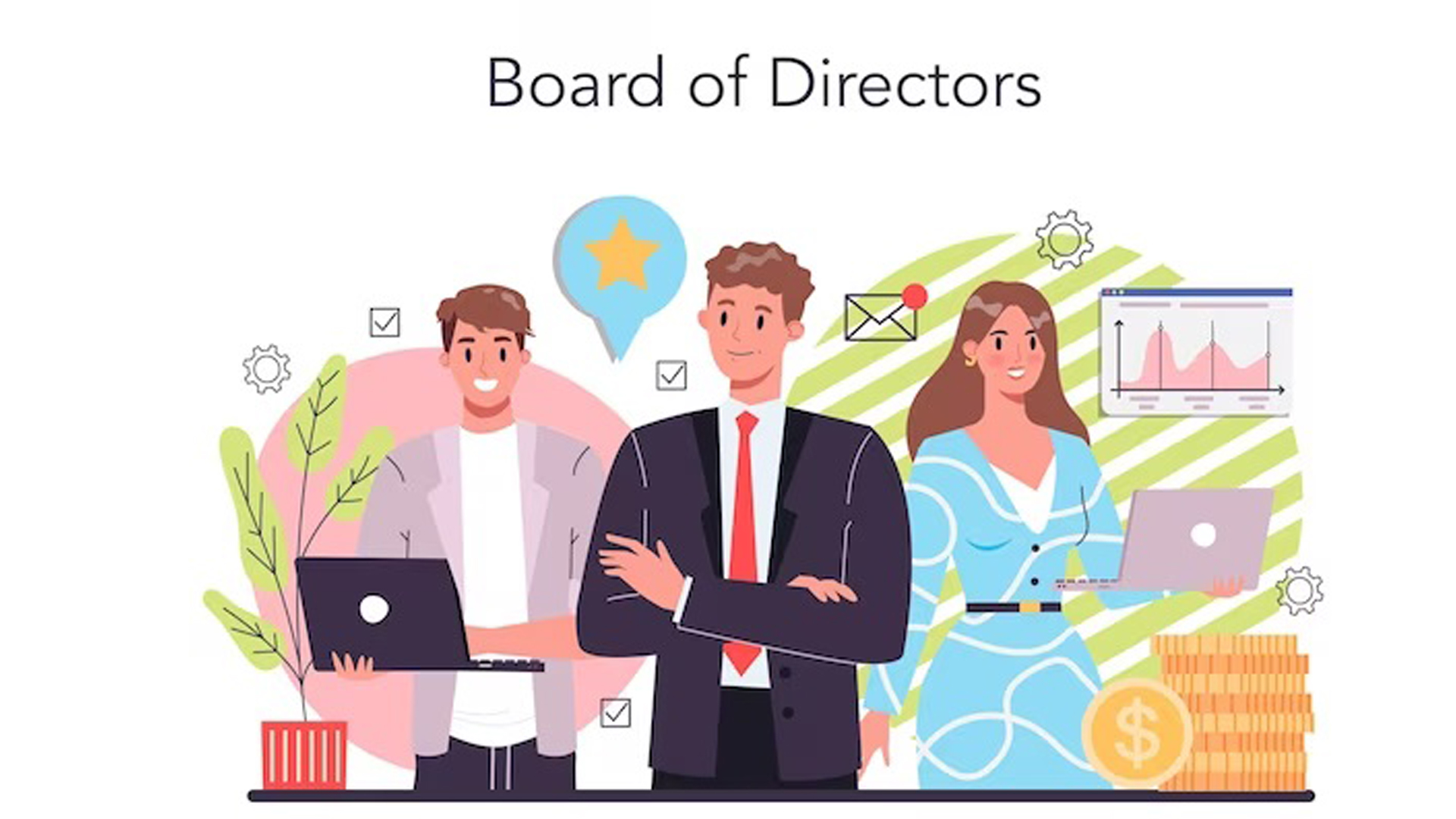
Ace The Director’s Chair Advanced Development Program
Course overview
The Advanced Directors Development Certification Training Program is pleased to have you here. This extensive program is intended to give seasoned directors and senior executives the cutting-edge know-how, abilities, and tactics they need to flourish in their positions and propel their companies forward in the quickly changing business environment of today.
Being in charge of an organization’s leadership positions is essential for determining strategy, managing governance, and boosting output. This program is designed with you in mind, giving you the tools and insights, you need to succeed in a setting that is becoming more competitive and dynamic while navigating the intricacies and challenges of modern leadership.
Participants will be awarded a distinguished Advanced Directors Development Certification upon program completion, signifying your proficiency and dedication to superior corporate governance and leadership.
We can’t wait to go on this life-changing educational adventure with you and equip you with the information, abilities, and understanding required to lead with impact, confidence, and integrity. Together, let’s go on this road to realize your greatest potential as a strategic leader and advanced director.
Directors give an organization excellent leadership and are legally accountable for the performance of the company, creating wealth for shareholders.
The Directors Development Program (DDP) is a reputable and excellent educational program. intended to support and equip leaders with the know-how and abilities necessary to function as high-achieving directors, equipping them to meet the demands and overcome obstacles on a daily basis.
This expedited five-day program for director development offers a fantastic chance for personal growth. It will provide you with a thorough comprehension and current knowledge of the roles played by directors and boards, as well as leadership, business strategy, finance, and—most importantly—organizational governance.
Introduction
An extensive and thorough training program, the Advanced Directors Development Certification Training Program is intended for seasoned directors, senior executives, and board members who want to improve their governance, leadership, and strategic thinking skills. This curriculum is designed to meet the changing needs and difficulties that today’s dynamic business environment presents for executives.
Who should Attend?
- This is the perfect use case for the Advanced Directors Development Certification Training Program:
- Directors and board members with experience
- Chief executive officers and senior managers
- Individuals that want to grow in their leadership roles or participate on boards
Those who work for organizations in charge of risk management, governance, and compliance. We are The Training Bee, a global training and education firm providing services in many countries. We are specialized in capacity building and talent development solutions for individuals and organizations, with our highly customized programs and training sessions.
Participants will get the necessary skills to raise their individual contribution at the board level and enhance the efficacy of the board. delivering the greatest possible return on investment, both personally and commercially.
Learning Objectives
Upon completing Advanced Directors Development Certification Training Program, participants will be able to:
- Gaining advanced leadership abilities can help you effectively direct organizational culture and strategy.
- Utilize models and ideas of leadership to tackle difficult problems and promote organizational success.
- Exhibit expertise in the development and implementation of strategic plans, ensuring that company goals are in line with stakeholder demands and market trends.
- Employ strategic analytical methodologies to evaluate market competition, pinpoint prospects for expansion, and minimize potential hazards.
- To drive financial success and assist in making strategic decisions, interpret financial statements and key performance indicators.
- Utilize financial management concepts to improve organizational sustainability and resource allocation.
- Respect moral principles and industry best practices for corporate governance to advance accountability, openness, and integrity.
- To safeguard the reputation of the company and reduce risk, resolve moral conundrums and make sure regulations are followed.
Our Unique Training Methodology
This interactive course comprises the following training methods:
- Role-playing – Participants will take part in several roleplays and understand practical ways of solving issues.
- Journaling – This consists of setting a timer and letting your thoughts flow, unedited and unscripted recording events, ideas, and thoughts over a while, related to the topic.
- Social learning – Information and expertise exchanged amongst peers via computer-based technologies and interactive conversations including Blogging, instant messaging, and forums for debate in groups.
- Project-based learning
- Mind mapping and brainstorming – A session will be carried out between participants to uncover unique ideas, thoughts, and opinions having a quality discussion.
- Interactive sessions – The course will use informative lectures to introduce key concepts and theories related to the topic.
- Presentations – Participants will be presented with multimedia tools such as videos and graphics to enhance learning. These will be delivered engagingly and interactively.
Training Medium
This Advanced Directors Development Certification Training Program training is designed in a way that it can be delivered face-to-face and virtually.
Course Duration
This training is versatile in its delivery. The training can be delivered as a full-fledged 40-hour training program or a 15- hours crash course covering 5 hours of content each day over 3 days
Pre-course Assessment
Before you enroll in this course all we wanted to know is your exact mindset and your way of thinking.
For that, we have designed this questionnaire attached below.
- What are your duties and obligations as a director currently?
- What kind of leadership challenges do you face in your present position?
- How do you make sure that your company has efficient governance?
- How much do you participate in your organization’s strategic planning process?
- Which tactics have you used to accomplish organizational objectives successfully?
- How do you assess whether your strategic initiatives are successful?
- What degree of familiarity do you have with financial analysis and statements?
- Have you previously participated in forecasting or budgeting processes?
- In what ways does your position include using financial data to guide decision-making?
Course Modules
This Advanced Directors Development Certification Training Program covers the following topics for understanding the essentials of the Agile Workplace:
Module 1 – Review of Leadership Fundamentals
- Emphasize the fundamental theories and concepts of leadership.
- Talk about advanced frameworks and approaches for leadership.
- Examine how directors influence organizational culture and strategy.
Module 2 – Strategic Alignment and Implementation
- Advanced techniques for strategic analysis.
- Formulating and expressing a captivating vision.
- Making strategic decisions and managing risks.
Module 3 – Directors’ Financial Acumen
- Analysis of financial statements.
- Forecasting and budgeting.
- Being aware of important financial ratios and KPIs.
Module 4 – Board Dynamics and Governance
- Guidelines and best practices for corporate governance.
- Board dynamics, composition, and organization.
- Efficient board meetings and procedures for making decisions.
Module 5 – Social Responsibility and Ethical Leadership
- Moral challenges in governance and leadership.
- Creating and advancing a moral culture.
- Including CSR and sustainability in strategic strategy.
Module 6 – Taking the Lead in Innovation and Change
- Techniques and frameworks for change management.
- Promoting an innovative and ever-improving culture.
- Overcoming aversion to change.
Module 7 – Communication and Stakeholder Management
- Determining the important stakeholders and ranking them.
- Effective director communication techniques.
- Handling disagreements and expectations from stakeholders.
Module 8 – Compliance and Risk Management
- Frameworks for enterprise risk management.
- Regulation requirements and compliance obligations.
- Planning for company continuity and crisis management.
Module 9 – Assessment of Performance and Planning for Succession
- Assessing measures for organizational performance.
- Best methods for succession planning.
- Creating programs for leadership development and talent pipelines.
Module 10 – International Views and Diversity in Leadership
- Using cultural intelligence to navigate international business settings.
- Encouraging inclusion, equity, and diversity in leadership.
- Directing multicultural teams and handling cross-cultural difficulties.
Module 11 – Case Studies and Real-World Implementation
- Examining case studies of successful and unsuccessful directors in the real world.
- Role-playing games designed to mimic boardroom discussions and decision-making processes.
- Projects including action learning to apply expertise to actual organizational problems.
Module 12 – The Board’s and Company Directors’ Roles
- The Companies Act’s definition of a director’s duties
- Corporate and moral leadership
- Risk management in the contemporary environment
- Managing stakeholders and providing both challenge and support in the boardroom
- Taking into account ongoing legislation changes
Module 13 – Non-financial Directors’ Finance
- The cash flow, balance sheet, and profit and loss/income statements are among the most important financial reports and measures of a corporation.
- How to read the financial data from a non-financial standpoint
- Recognizing rules and principles in accounting
- Finance directors can employ techniques, such as financial ratios, to produce financial information that is not friendly to the financial world.
- Recognizing the connections between the directors and business owners of a company and its financial stakeholders
- Finding the telltale symptoms of a failed business
- How to use the financial function to your advantage and rely on it
Module 14 – Advanced Guidance for Directors
- Leadership self-awareness and 21st-century leadership techniques
- Fostering an inquiring mindset, driving organizational transformation, and gaining expertise
- Monitoring results and tracking advancement
- Fostering a pleasant work environment through accountable, effective, and long-lasting leadership
- Leading varied, mutually reliant groups
- Building resilient teams, effective coaching and mentoring programs, and soft skills for performance in the workforce
Module 15 – Directors’ Advanced Strategic Planning
- Recognizing the distinctions between operational and strategic thinking
- Concepts of strategic business planning
- Establishing and overseeing a procedure for effective organizational change
- Defining the business climate and important variables
- Examining several strategic management and leadership theories in order to guide best practices
Module 16 – Leaders’ Guide to Strategic Marketing and Communication
- Utilizing research and insights to determine value and market share
- Establishing “the universal truth” and a reputation.
- The process of making a purchase decision
- Communications with stakeholders and public affairs
- Social media and digital marketing
Post-course Assessment
Participants need to complete an assessment post-course completion so our mentors will get to know their understanding of the course. A mentor will also have interrogative conversations with participants and provide valuable feedback.
- Describe the ways in which the program has given you the tools to lead change and promote innovation in your company.
- How do you intend to solve organizational difficulties using the innovation concepts and change management frameworks you learnt in the program?
- Which program teachings do you think will be most helpful in ensuring that your organization’s change activities are successful?
- Which communication techniques that you learned about during the program do you think will help you get support from stakeholders for your initiatives?
- Based on the program’s observations, what actions do you intend to take to improve risk management procedures and guarantee regulatory compliance?
- In what ways has the program changed your thinking about inclusion and diversity in leadership?
Lessons Learned
Improved Leadership competences: Participants’ leadership abilities have improved, surpassing the foundational knowledge needed for efficient directing to more sophisticated competences. They now possess a more profound comprehension of governance concepts, strategic thinking, and leadership ideas.
Directors have mastered the art of navigating intricate and ever-changing company situations with strategic agility. Through proactive strategic planning and execution, they may foresee and address new trends, opportunities, and disruptions, resulting in the success of the organization.
Financial Acumen: By improving their financial literacy and acumen, participants are better equipped to manage finances within their businesses and make well-informed decisions. They are able to assess financial data to promote value creation and comprehend how strategic objectives are impacted by financial performance.
The significance of ethical leadership and corporate social responsibility in cultivating trust, sustainability, and enduring stakeholder value has been acknowledged by directors. They are dedicated to maintaining moral principles, encouraging honesty, and incorporating corporate social responsibility into business strategy.
Innovation and Change Leadership: Through the training, directors have developed an innovative culture within their firms and improved their skills as change leaders. In order to remain competitive in dynamic markets, they have mastered the art of overcoming opposition to change, encouraging creativity, and promoting constant progress.







